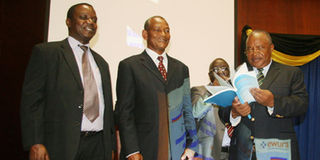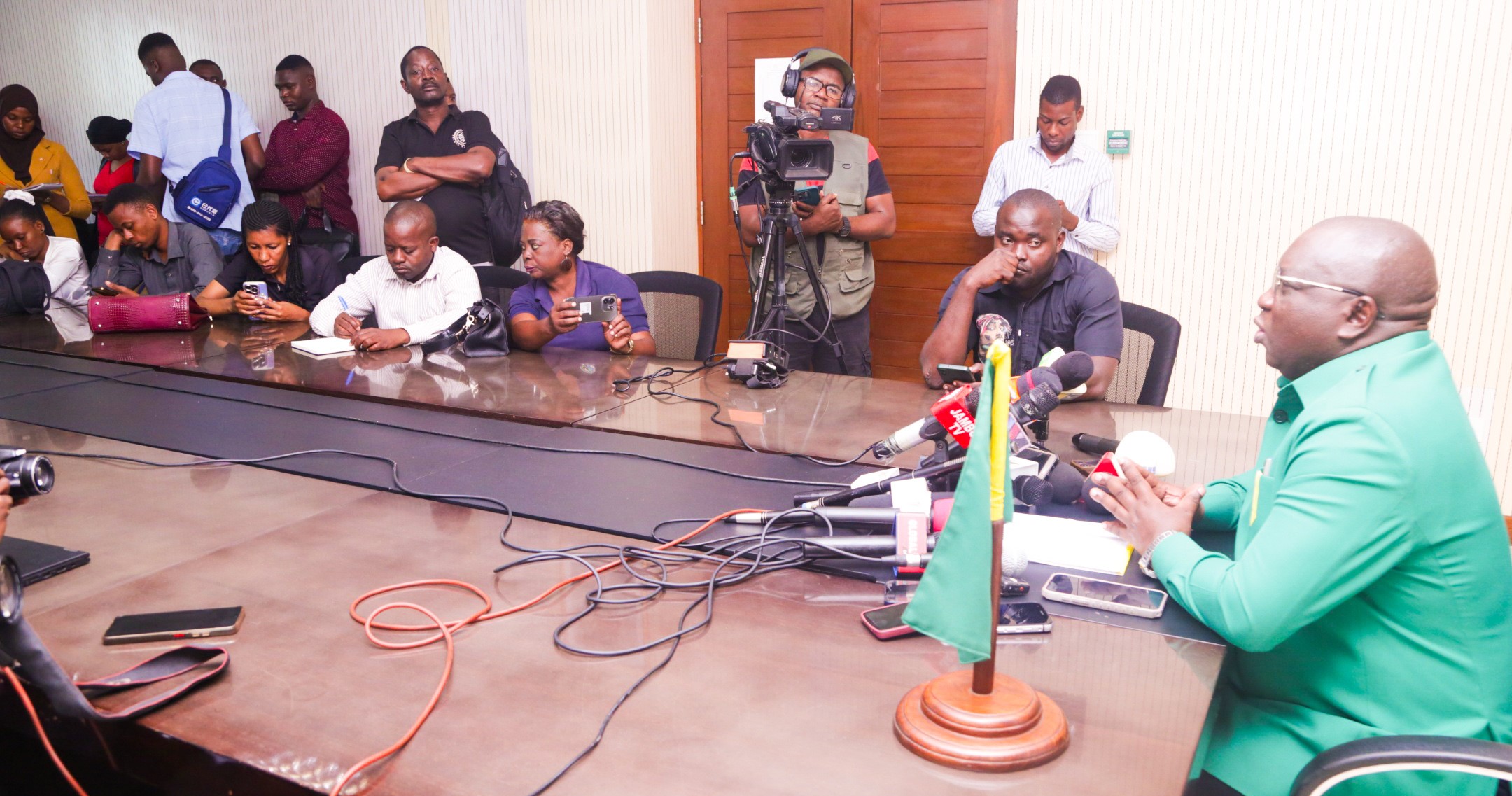Half of Dar tap water lost before reaching consumers: new report

Minister for Water Prof Jumanne Maghembe peruses through the Water Utilities Performance Review Report for the year 2013/14 after he launched it in Dar es Salaam yesterday. Looking on are Energy and Water Regulatory Authority (Ewura) director general Felix Ngamlagosi (left) and Ewura board director, Mr Simon Sayore. PHOTO | VENANCE NESTORY
What you need to know:
- The report says that only 100,000 out of 3.5 million Dar es Salaam residents access water supplied by city water authorities because a large amount of such precious liquid is lost through leaks.
Dar es Salaam. More than half of water produced for residents of Tanzania’s major commercial and port city, Dar es Salaam, is lost according to a new report released yesterday. The report further shows that only a small fraction of the people in the city have access to water produced by the public entity.
The report says that only 100,000 out of 3.5 million Dar es Salaam residents access water supplied by city water authorities because a large amount of such precious liquid is lost through leaks.
The amount of water that is lost by Dar es Salaam Water and Sewerage Corporation (Dawasco) has increased from 55.5 per cent in 2012/13 to 57.4 in 2013/14, the study has found out.
The Water Utilities Performance Review Report which was launched yesterday by the Energy and Water Utilities Regulatory Authority (Ewura) indicates, however, that the amount of water lost countrywide has decreased from 49.2 per cent to 45.8 per cent in the same period.
The report shows how water loss remains a serious problem within water utilities in the country putting at risk the lives of about 45 million people countrywide.
The report shows the amount of water that was supplied by Dawasa declined from 4.7 per cent--94.11 million cubic meters in 2012 to 89.67 cubic meters in 2014 making it supply only 47.7 per cent of the total water requirement in the year 2013/14.



